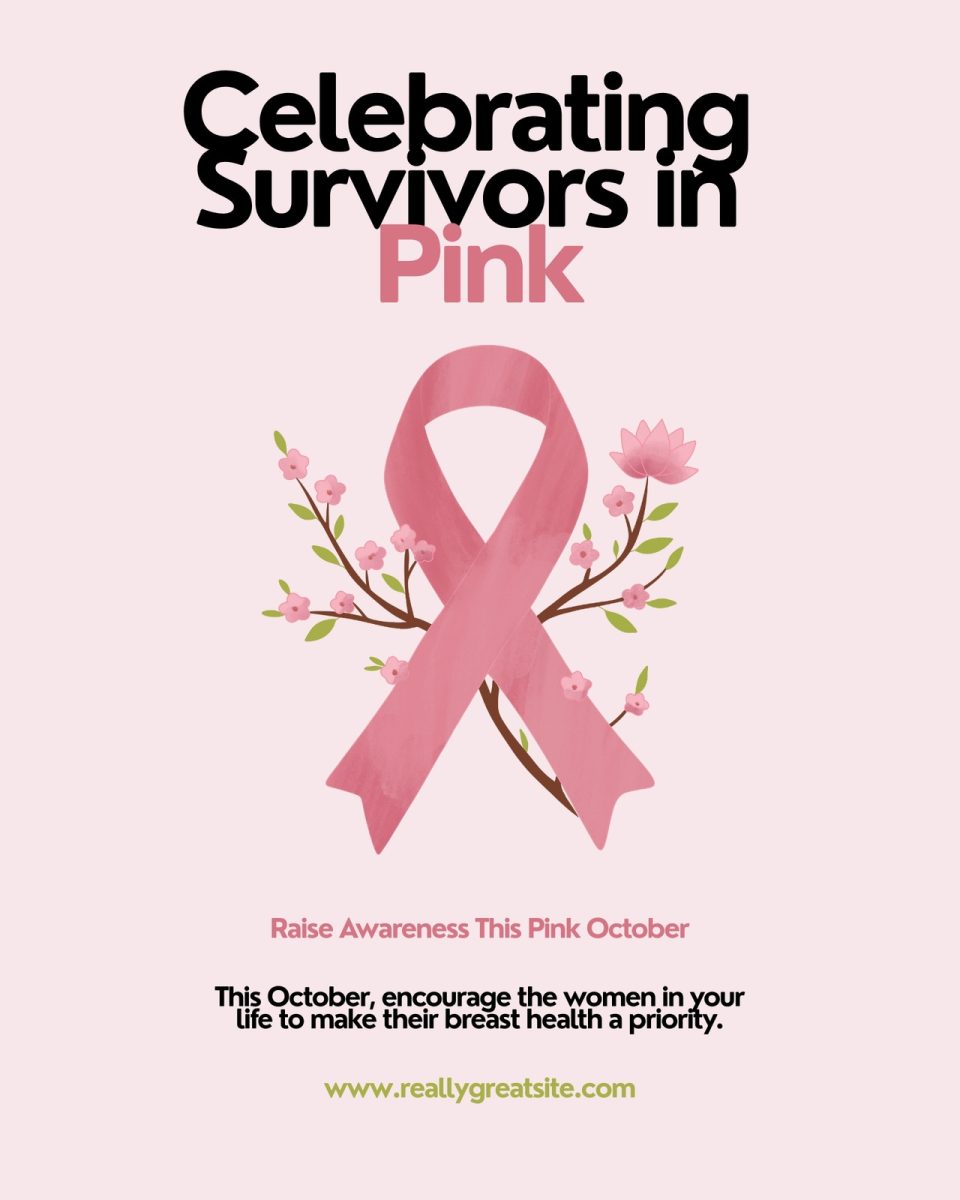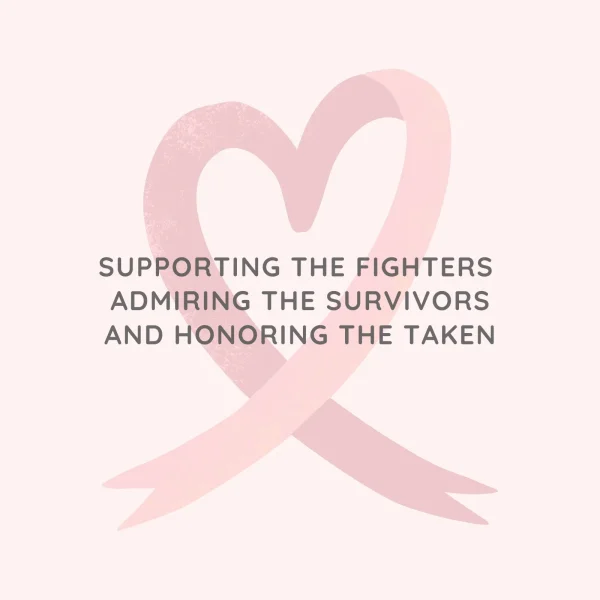
Amira Cherif
One in eight women suffers from breast cancer. Years ago, being one in eight used to be a horrible sentence, such as death. Luckily, with the advancements that our medical system has made over the years, having breast cancer isn’t a horrible prognosis. Statistics show that as of 2025 in the U.S., only one out of forty-three women will have a fatal outcome due to breast cancer, and the death rate has dropped 44% since 1989.
“In my lifetime, I have seen a change in awareness, research, and treatment. When I was little, when someone said you had breast cancer, that was pretty much a death sentence, but now they have treatments that can cure you, and medicines that keep you from getting so sick during treatments. I think awareness is more than ever, which may be why more and more people are getting diagnosed with breast cancer, and at younger ages as well. They are getting screened and catching it in time to cure it,” Lucy Williams, a breast cancer survivor, said.
A screening called a mammogram is a procedure women go through every year for a check-up that is done by imaging with X-ray machines to detect early signs of cell abnormalities by taking detailed pictures of the breast tissue for any abnormalities, which would indicate the dreaded “C” word.
“So as a radiologist, I kind of started out in general, then I describe more what a breast radiologist does, but a radiologist in general. They are a medical doctor who specializes in diagnosing and treating conditions using imaging equipment, such as X-ray, CT, MRI, or mammography. Some radiologists just specialize in breast imaging, and so breast radiologists specialize in reading mammograms, breast ultrasounds, breast MRI, and performing diagnostic breast procedures to help and treat different medical conditions of the breast,” Radiologist at Gonzales Healthcare System, Kayle Hill said.
Yearly, October brings awareness to the public by possibly knowing someone who has been recently diagnosed, is currently going through the diagnosis, or remembering someone who battled the disease, making them spread awareness.
“Breast Cancer Awareness Month is an annual campaign to help raise awareness of breast cancer, educate the public about its symptoms, prevention, and fund research into its causes, treatments, inspire curiosity, and encourages women to go for regular breast cancer screening starting at age 40 or earlier, and raise money for breast cancer research,“ Hill said.
But why is it so important to get checked at such a young age? Most people think that just because they are young that they won’t get breast cancer, but the truth is that because they are young, it can be even worse for them.
“Young women are more likely to have aggressive forms of the disease. Early detection is key to a successful prognosis. Young people are more likely to have their concerns dismissed by a doctor who may not suspect breast cancer at a young age in those patients. Being informed allows you to advocate for more testing and research,” Hill said.
Young women should establish a relationship with an OBGYN to help educate them in how to properly perform monthly self-exams at home that can be prophylactic in early detection of any abnormalities, sparing the emotional stressors of a late diagnosis.
“I wish more people knew what a person goes through mentally, not just physically. Not only does your world turn upside down when you get the news of the big “C’ word, but you mentally and emotionally go through so much, like who is going to take care of everything while I am sick? How am I going to work? How are bills going to get paid? How am I going to be able to pay for my treatment, gas for going back and forth? Then you have the hard part of losing either one or both breasts, your hair, the things that make you feel like a woman. For me, it was even harder because I had had a hysterectomy 10 years before. So now I have lost all my female parts. I felt ugly. Life after cancer is still rough; I am still adjusting to things. Still going to doctors’ appointments, chemo can mess up so much stuff, like my teeth, and I have arthritis from it. Who knows what other side effects I will have? I take it day by day. Glad to be here and alive,” Williams said.
The month of October brings not only the bright colors of PINK but also raises the awareness of Breast Cancer Awareness Month, zoning in on the people who are going above and beyond, and are unrecognized for the efforts brought to bring lesser burdens to those currently going through this battle and spreading awareness more than ever.
“I think it’s very important for everyone to get involved. You never know when you or someone you love could get diagnosed. If you know how to be there to help that person, it makes all the difference in the world for the person who is battling the nasty disease. Rather, you are there to go to appointments with them, or fix a meal to eat, or clean/straighten up around their house for them, or take or pick up their kid(s) from school. So many things you can help with. It’s scary to go through, and to have people there for you showing they care. I have a daughter, Jolee, who was 13 at the time I was diagnosed. I tried to involve her in everything I was going through. She shaved my head for me when I started losing my hair. She went to all of my surgeries with me and some of my chemo treatments when she could. I wanted her to be a part of it to show her I am fighting this and to show her that I am ok. I was very blessed to have my mom, Renee Argo, with me through it all as well. She took care of me after all the surgeries, was there for all of them as well, and she went to every chemo treatment with me. My husband was there, going to work, taking care of everything around the house. I had my sister Margo come down a few times and stay. My sister Rachel came to the hospital several times. Just knowing people are there for you helps,” Williams said.
Don’t let the month go by passively, of the routine “Breast Cancer Awareness,” instead keep the October mentality year-round. Go to routine visits, be with the people who either have cancer, survived, or have lost someone, and educate yourself about the signs/symptoms of breast cancer.
